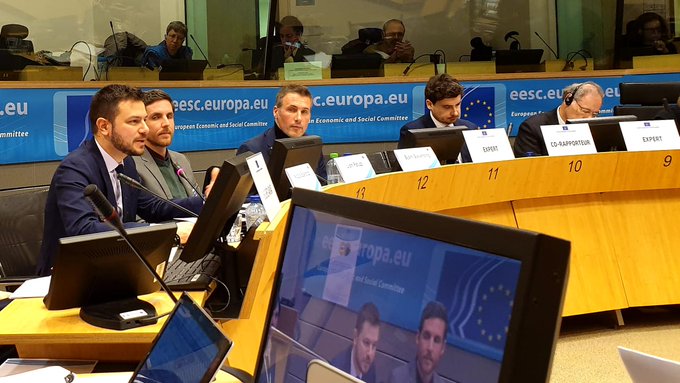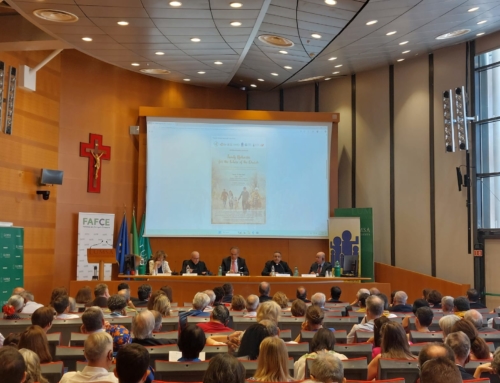Brussels (14-15 January) – In the context of the Croatian Presidency of the Council of the European Union, which has made the demographic challenge one of the priorities of its semester (January-July 2020), FAFCE intervened in different European institutions to present its inputs to tackle the European demographic deficit.
Our Secretary General, Nicola Speranza, intervened during an input session at the European Economic and Social Committee on an Explanatory Opinion on “Demographic challenges in the European Union in light of economic and development inequalities”. He namely said that “We cannot avoid the question of the demographic transition in our countries. It is good that this is among the priorities of the Croatia Presidency of the Council of the European Union – a good moment to propose concrete actions for families in Europe”.
The Rapporteur, Mr Stéphane Buffetaut, and the Co-Rapporteur, M. Adam Rogalewski, appreciated very much FAFCE’s contributions, namely on the importance to declare public expenses in family policies as an investment for the future.
Our Secretary General also took part in a Stakeholders’ consultation at the European Committee of the Regions on “Demographic change: proposals on measuring and tackling its negative effects on EU regions” (Rapporteur: Mr János Ádám Karácsony, EPP, Hungary). He underlined the principle of subsidiarity and the role of Family associations as key-actors in shaping effective policies.
This event saw the presence of two representatives of the General Secretariat of the European Commission, as this Opinion will be a base material for the future work of the European Commission, under the portfolio on demography of the Vice-President Dubravka Šuica.







